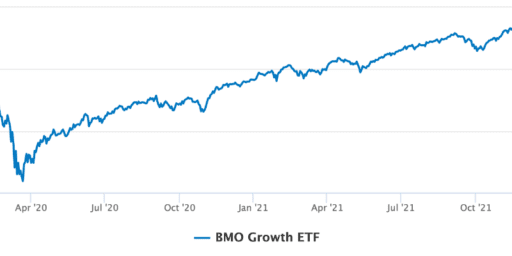Best Business Credit Cards for Canadians in 2025
A business credit card is a credit card that’s designed specifically for company spending, as opposed to personal use. Other than giving you access to additional money, they can give you a number of corporate benefits. Overall, it’s a great way to grab a few additional perks on money that you’d flowing in and out of your business anyway.
The first difference between a business and personal credit card is eligibility. You must be a registered Canadian business — which usually includes sole proprietorships. This means having a more rigorous application process and higher standards of creditworthiness, on top of stricter requirements (i.e. income requirements).
It can also mean the application process takes longer, too, and annual fees that are more expensive. (I know, so far this isn’t sounding like such a great deal, but bear with me.)
Secondly, the actual credit lines offered differ between business and personal credit cards. Usually, there is a higher agreed credit limit for business cards.
The good news is that there are also some really great perks associated with business credit cards, because banks are competing for the custom of business owners. The benefits are of course tailored for businesses, so these might be things to help ease cash flow, such as X amount of days free from interest. There’s usually a bunch of partnership programmes too where you can get discounts for business services.
One of the main benefits of business credit cards is the complete separation between business and personal finances. This is particularly important for sole proprietors or general partnerships. Having a business credit card can mean that you have a better business mindset.
The demarcation of finances can mean you’re better able to track profits, and may limit dipping into the business money with personal purchases, and vice versa. This is crucial if you’re serious about growing a business — it needs to be its own entity, whether it actually is a corporation or not.
This of course means that all purchases on the business card are for the business. This makes it much easier to track expenses, which will reduce your taxable income amount. Using a personal credit card would prevent you from letting employees use a company card for things such as travel, which would otherwise cut down your tax bill.
For more information on personal cards, you can read our list of the best credit cards in Canada, or the best travel credit cards. Below, you’ll find the top 5 business credit cards in Canada:
CIBC Aventura Visa Card
The CIBC Aventura Visa card is perhaps the best all-round business credit card in Canada. It’s issued by a reputable company, it’s got great rewards, the annual fee is satisfactory, and there’s a great sign up bonus,
- Interest: 21.99% on cash, 19.99% on purchases
- Welcome bonus: Up to 35,000 bonus points
- Annual fee: $120
- Rewards rate: ~2.58%
- Extra Card Fee: $50
- Eligibility: $35,000 personal income
- Insurance:
- Travel accident: $500,000
- Flight delay: $500
- Extended warranty: 1 year
The welcome bonus of 35,000 points equates to a monetary value of $802. As we can see, these are some very generous insurances and rewards, as well as being a competitive rate of interest and annual fee.
This card is ideal for: Larger companies who want to be insured, and for businesses that travel a lot.
Scotiabank GM Business Visa
Scotiabank is a highly reputable business credit card with a ton of positive customer reviews. As we can see from below, they gain their competitive edge on having a very low annual fee, with minimal eligibility requirements. They also have the best rewards rate out of the 5 on this list, meaning that if you spend $10,000 per year, the 3.25% return on spending would leave you with $325. After the cheap $79 annual fee, that’s $246.
It’s also worth noting that while the percentage return in rewards is excellent, the only place to spend them in on GM products. So if you don’t plan on purchasing a GM vehicle, then this isn’t the right card for you.
- Interest: 22.99% on cash, 19.99% on purchases
- Welcome bonus: None
- Annual fee: $79
- Rewards rate: ~3.25%
- Extra Card Fee: $29
- Eligibility: No income requirements
- Insurance:
- Travel accident: None
- Flight delay: None
- Extended warranty: 1 year
However, the Scotiabank GM Business Visa lacks insurance coverage as well as a welcome bonus.
This card is ideal for: Businesses that can write off vehicle leases or purchases.
BMO CashBack Business Mastercard
BMO has many great business cards, but the CashBack Business Mastercard in particular is a standout due to it being completely free — a rarity in this market. It’s not just the initial cards that are free either, extra employee cards are too.
- Interest: 22.99% on cash, 19.99% on purchases
- Welcome bonus: $54
- Annual fee: $0
- Rewards rate: ~0.86%
- Extra Card Fee: $0
- Eligibility: None
- Insurance:
- Travel accident: None
- Flight delay: None
- Extended warranty: 1 year
Of course, the downside to being the cheap alternative is that bonuses aren’t as plentiful, and reward returns are very low.
This card is ideal for: A more passive or low-cost business that’s very small, with low purchases and not many employees.
Marriott Bonvoy Business American Express Card
The Marriott Bonvoy Business American Express Card, as you may have gathered from its partnership name, is absolutely geared towards travel. They have great insurance and a large selection of hotels in which you can redeem your points with, such as Marriott, Ritz-Carlton, Delta and Renaissance. Marriott points are also relatively easy to transfer across many different types of loyalty programs.
- Interest: 21.99% on cash, 19.99% on purchases
- Welcome bonus: $150
- Annual fee: $0
- Rewards rate: ~2.46%
- Extra Card Fee: $50
- Eligibility: None
- Insurance:
- Travel accident: $500,000
- Flight delay: $500
- Extended warranty: 1 year
However, whilst the CIBC Aventura Visa Card doesn’t have quite as many travel perks as the Marriott Bonvoy one, it has similar insurances as well as a higher rewards rate. In other words, companies that travel a lot tend to have higher annual spending, which would better be rewarded on the CIBC.
This card is ideal for: Businesses that include a lot of travel expenses.
CIBC Aerogold Visa Card for Business
The CIBC Aerogold Visa Card is an extremely credible, reliable business credit card that performs well in multiple categories. The signup bonus is 20,000 air miles, which is somewhat equivalent to $500. You can have up to 9 additional cards, and the rewards rate is competitive. The biggest attribute of this card is the low interest rates, which are almost half that of the industry average for cash.
- Interest: 12.99% on cash, 14.50% on purchases
- Welcome bonus: $500 (20,000 air miles)
- Annual fee: $180
- Rewards rate: ~2.68%
- Extra Card Fee: $50
- Eligibility: $35,000 personal income
- Insurance:
- Travel accident: $500,000
- Flight delay: $500
- Extended warranty: 1 year
This card is ideal for: Businesses that will make use of the credit, as it’s cheap. It’s also a great card for air miles.
How Did I Compare the Best Business Credit Cards?
The method of deciding which cards are good and which aren’t isn’t just one or two things. The process, which is worth explaining in order to help others assess business cards, is split into four factors: The company, the contractual obligations, the features and finally the customer reviews.
Look at the company
First and foremost, we explored the credibility of the company. Initially, we can see if this is a new company or if it’s been working in the industry a long time. Longevity usually indicates reputability, but it can’t be relied upon alone. We need to check that the company is fully regulated and licensed too, which if you’ve already heard of it beforehand, it most likely is.
We can also check how many departments/services the company has — perhaps we favour companies with a large array of services, so that building a relationship with them is worthwhile and may lead to future opportunities. It’s also worth checking out their customer service, points of contact, as well as if they’ve recently had any bad press, such as mass redundancies, lawsuits, bailouts or a fall in share price.
Look at the obligations and small print
Once we know the companies in question are legit, we can compare business credit cards. Obligations and small print refers to things such as annual fees, which are costs (or potential costs) that each card will bill you.
It’s then important to compare all of the obligations between cards. Think of this as “in the worst-case scenario of missing payments, being overdrawn and so on, which card will hurt me the least?” You need to read the fine print on all of them. Check the potential charges, interest rates, exchange spreads, membership fees, credit limits and so on.
Features and rewards
Any good business card will have some features that make business for you either cheaper or easier. You’re not just looking for the one with the most features, but the ones that benefit your situation the most. A good business credit card will tend to have partnerships in which you can get discounts elsewhere, such as hotels, as well as some contingency allowances.
Some features worth looking out for are: interest free periods, extra cards for employees, accepted around the world, contactless, payments can be made over the phone, direct debit, cash flow visualisation, dedicated travel team/concierge, airport lounge access, discounts on other business services, and insurances.
Loyalty programmes are popular, and are a great way to save money in the future. Canadian business credit cards seem to be mostly concerned with air miles, so you have good choices for those that travel on business. Lastly, when two cards and companies appear very similar, one having a good welcome bonus could certainly tip it in their favour.
Canadian business credit cards and charge cards offer surprisingly great reward bonuses, even in comparison to top American business credit cards or top Australian cards. Cards like the CIBC Aerogold Visa Card for Business offer a return of more than 2.5% whereas Amex business cards, known to be difficult to apply, would rarely offer a return above 1.5% in reward points.
Customer experiences
A good business card and a bad business card can be somewhat reflected in the reviews. Assuming you trust the aggregate opinion of the public (which admittedly is met with some resistance), there’s no doubt that lots of negative customer reviews will represent issues with the product, whilst one with no complaints generally represents a delivery of a promise.
The beauty is that many of these credit cards have 1,000+ reviews online. This is just great data. The more reviews there are, the less chance they’re all fake or swayed by extreme outliers. It’s important to not just look at the aggregated numerical score, though. This is a great starting point, but we should explore if there’s patterns and themes among the reviews (particularly the negative ones), which we can then decide if it’s a big issue, or a common problem that won’t concern you (i.e. if the issue is that they don’t answer emails, but you only ever make phone calls).
Business Credit Cards – Who is it For?
All businesses should be looking to get a business credit card, but some need it more than others. Certain types of companies tend to benefit more from these cards, for various reasons. Firstly, international businesses who have suppliers abroad can benefit from credit cards that have good exchange rates.
This is something many people don’t think about when signing up for a credit card, but some have exorbitant exchange spreads and overseas transaction fees. These can amount to thousands of dollars a year wasted for international firms. Spending limits are higher on credit cards than personal ones, too.
Secondly, companies with lots of employees are more in need of a good business credit card than a sole trader who runs a one man show. Being able to let employees use the card for business expenses can make it really easy to keep track of costs and leave a paper trail.
This is even more important when employees do a lot of business travel, because they can rack up air miles/loyalty points, benefit from travel insurance and many other common rewards.
Lastly, businesses that struggle with cash flow are a prime target for business cards. Not only is the credit line and such beneficial to helping ease cash flow fluctuations, but the data is easier to visualise when it’s contained to one account.
Understanding Your Borrowing Limits
As powerful as leveraging is — to gear the company and grow it through some debt — this isn’t necessarily the right way to go about it. Long-term bank loans with low APRs would be preferable, for example. After all, interest is likely going to be above 19% on these business credit cards. Maxing out the credit line would mean paying a lot of interest, which begins to hurt your cash flow.
It’s important to keep in mind that the business credit card is there to help cash flow, not hurt it. This means making use of the free days of interest you have for example, but being mindful of when this is approaching its limit.
When you begin to use your credit card like this, you realise it’s a nice little safety net, as opposed to a means of growth. Growth should come organically, or if through debt, a cheaper source of debt. Again, you can receive all of the rewards and loyalty bonuses without ever going into negative.
It’s good to treat the credit as an emergency fund. This is particularly important for small businesses to hear, because circumstances can change quickly. One minute you’re using your 50 days of free credit for some expansion purchases, then on day 45 the country goes into lockdown, or a client pulls out.
Canada’s Small Business Credit Card Solutions
Small business credit cards are vitally important in separating personal money from the business. The rewards you can gain alone are usually worth more than the annual fees, and it allows employees to make use of company expenses more easily. The accounts are perhaps the ones who benefit most from moving away from personal credit cards.
Whilst the credit itself is extremely useful for businesses to tie over any cash flow difficulties, it shouldn’t be seen as a honey pot to fund growth projects. It’s much more preferable to grow slowly, organically, or through cheap debt (most business credit cards in Canada aren’t cheap debt).
Overall, there is no single best card on the market, it simply depends on your business needs. For those that have large annual spends, the rewards from the Scotiabank GM Business Visa will serve you best. However, businesses that travel plenty may benefit the most from the Marriott Bonvoy Business American Express Card. Likewise, there are free alternatives too, if you’re a very small or struggling company.
I've Completed My Million Dollar Journey. Let Me Guide You Through Yours!
Sign up below to get a copy of our free eBook: Can I Retire Yet?










